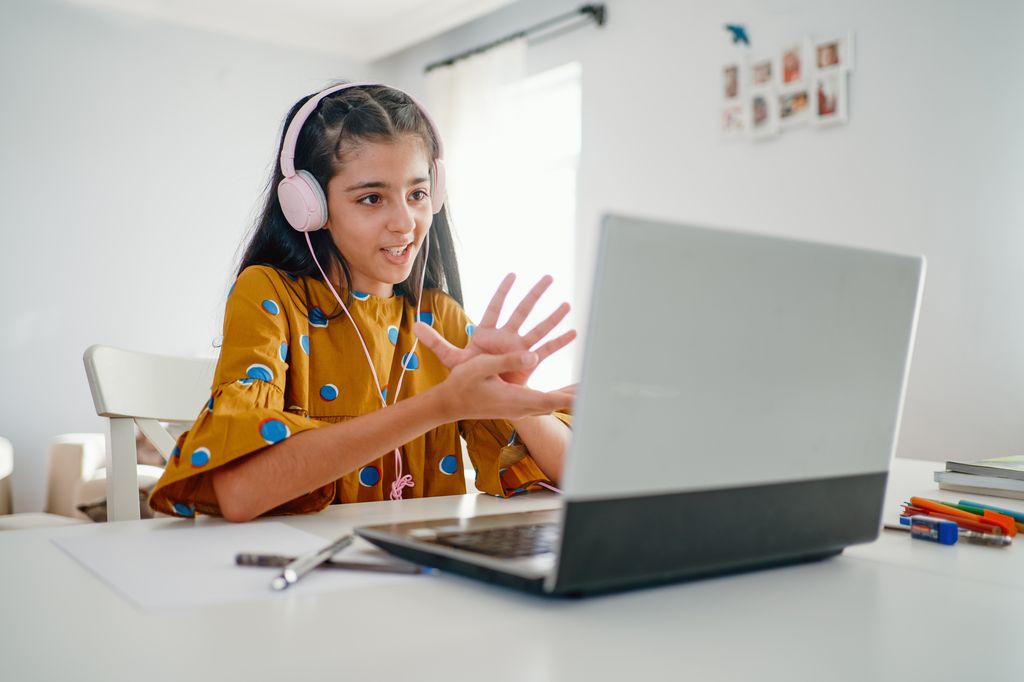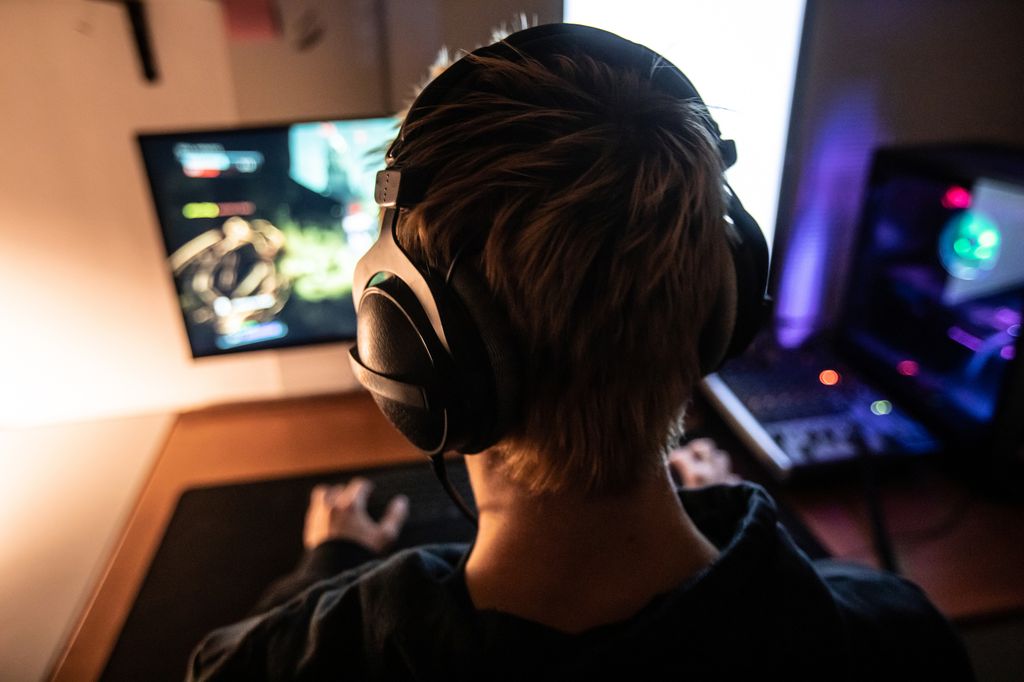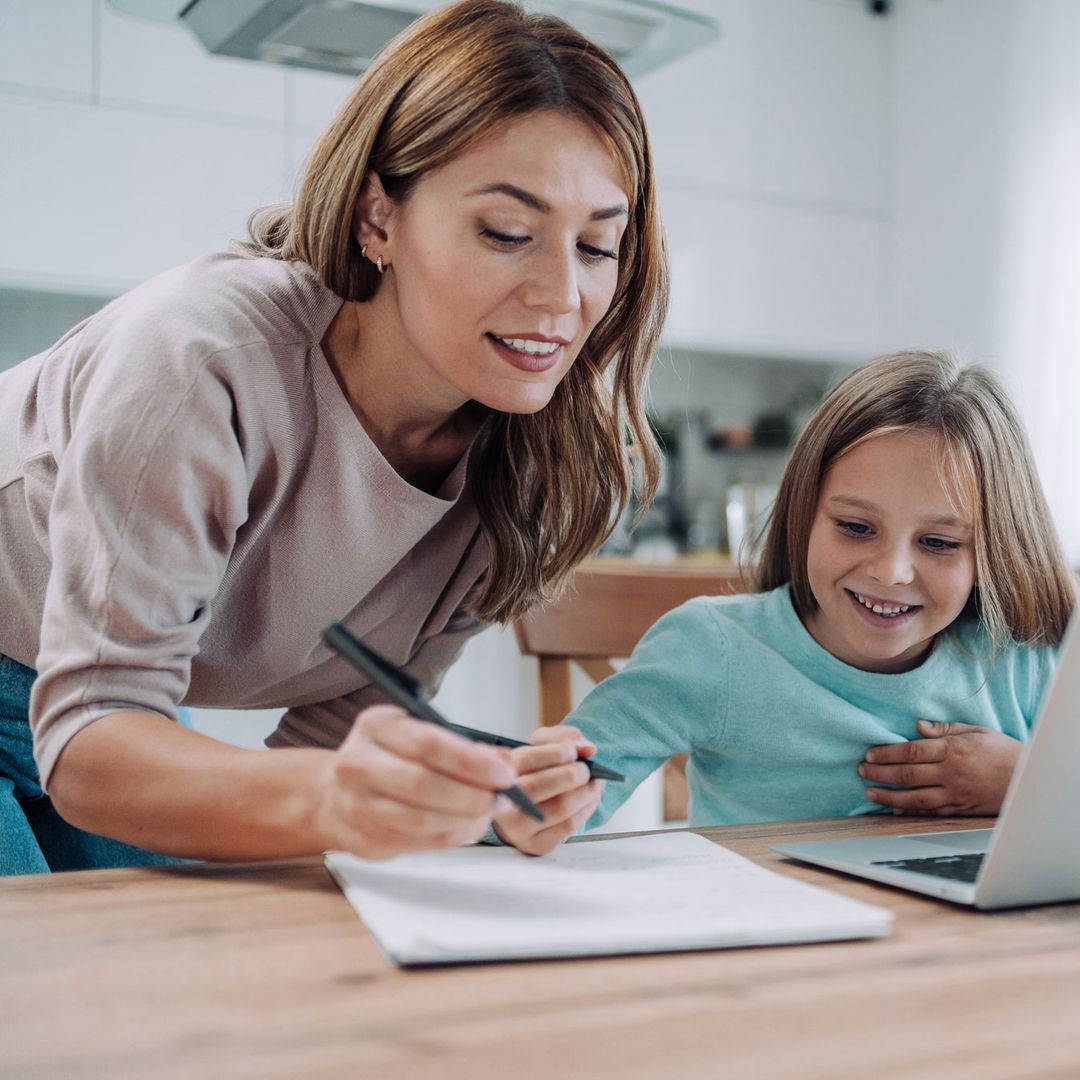There's no escaping it, the internet dominates our lives. While it's an essential tool for work, studying, communication, entertainment and beyond, there are, of course, negatives.
If you're a parent, you don't need us to tell you that your child's presence online comes with risks. Whether it's accessing adult content or cyber-bullying, parents are often on high alert when it comes to keeping their children, teens and in-betweens safe while surfing the web.
Naturally, talking to your young one about their online usage might be a triggering topic or even a cause for a disagreement, but experts insist it needn't be.
HELLO! spoke to child psychologists, Ana Aznar and Dr Charlotte Armitage, as well as Zoe Walters, an expert in Child and Social Care, about how best to approach the topic of online safety with your children.
How to talk to your child about online safety
Dr Charlotte, Armitage, a psychologist, psychotherapist and the founder of No Phones at Home CIC, told HELLO! about the best ways of bringing up online safety with your children – and it all starts with environment. "Create a safe space for your child to open difficult conversations with you," she said.
"Maybe you have these types of conversations at a specific time of the day or in a specific space in the house."
When talking about how much your child uses their device, whether it's a phone, laptop, tablet or gaming console, exploring options and its usage together encourages healthier discussion. What's more, actually taking an interest could make them feel heard – reciprocity will follow.
"With devices, I'd recommend exploring their online worlds with them so that you can discuss what is going on. Do this in a fun, exploratory way, such as watching videos together and discussing them, or looking at what they are doing on a game and taking an interest. Don't have the online world as one that they go in alone, go there together."
How to spot if your child is being bullied online
If the thought of your child being bullied in the playground wasn't awful enough, the idea of them being bullied online – with an added veil of anonymity – can often be worse.
But if a teen is being bullied online, they're not always going to be vocal about it, and parents spotting it themselves isn't exactly easy, either.
Dr Charlotte said: "Children don't present in the same way as adults do when they are distressed, therefore spotting signs of distress in children can be difficult. As a rule, if there are any behavioural or emotional changes, this can indicate that the child is dealing with something that they are psychologically unequipped to deal with."
In terms of signs and signals, there are a few general hints that parents can be on the lookout for. "Look out for changes in mood, attitude and motivation. Behaviourally, they might spend more or less time sleeping than usual, become isolated, and become more detached from the family unit."
Zoe Walters, a Child and Social Care expert at Open Study College reiterated this, telling HELLO!: "Parents may find that their child is becoming quiet and withdrawn. They may try to feign an illness so they can stay at home and not go to school to avoid the children who are bullying them (if the bully is at the same school).
"They may also start to be secretive about their phone/IT use around their parents, and spend more time in their rooms." Encouraging healthy communication will come into use here.
MORE: Why parents need to prioritise their mental health
MORE: What if I don't want to 'have it all?'
What else should parents bear in mind when it comes to online safety?
Zoe also explained that setting examples for your children and teenagers to follow is a great place to start. We can't prevent online usage completely, but bear in mind what your children see you doing, particularly if you're a super-scroller.
"Parents can encourage a healthy balance with social media by setting a good example themselves. We know from research that children and teenagers mimic the behaviour of parents so moderating the amount of time a parent engages with social media in front of their child can be really helpful.
"Parents should set ground rules. It might be that there is a no phones in bedrooms policy at night which many families adopt, not just for children but for adults as well."
What about adult content?
It's a minefield. Many teenagers can access adult and explicit content in a matter of seconds, no matter how stringent parents and guardians might be at firefighting this.
Dr Charlotte told HELLO!: "The internet is so unpredictable, even with all the safeguards and controls online, these websites can still find a way through. It might be best to handle situations like this by telling your children in an age-appropriate way that not all content online is appropriate for them and that it is ok for them to come to you if something comes up that they shouldn't see."
A similar theme is emerging: education. "We should educate children about this material and equip them with the knowledge to deal with it, whether that is education around pornography compared to healthy sex, education about relationships or teaching our children that they should come to us," Dr Charlotte explained. "What you decide to do will differ depending on their age and stage of development."













